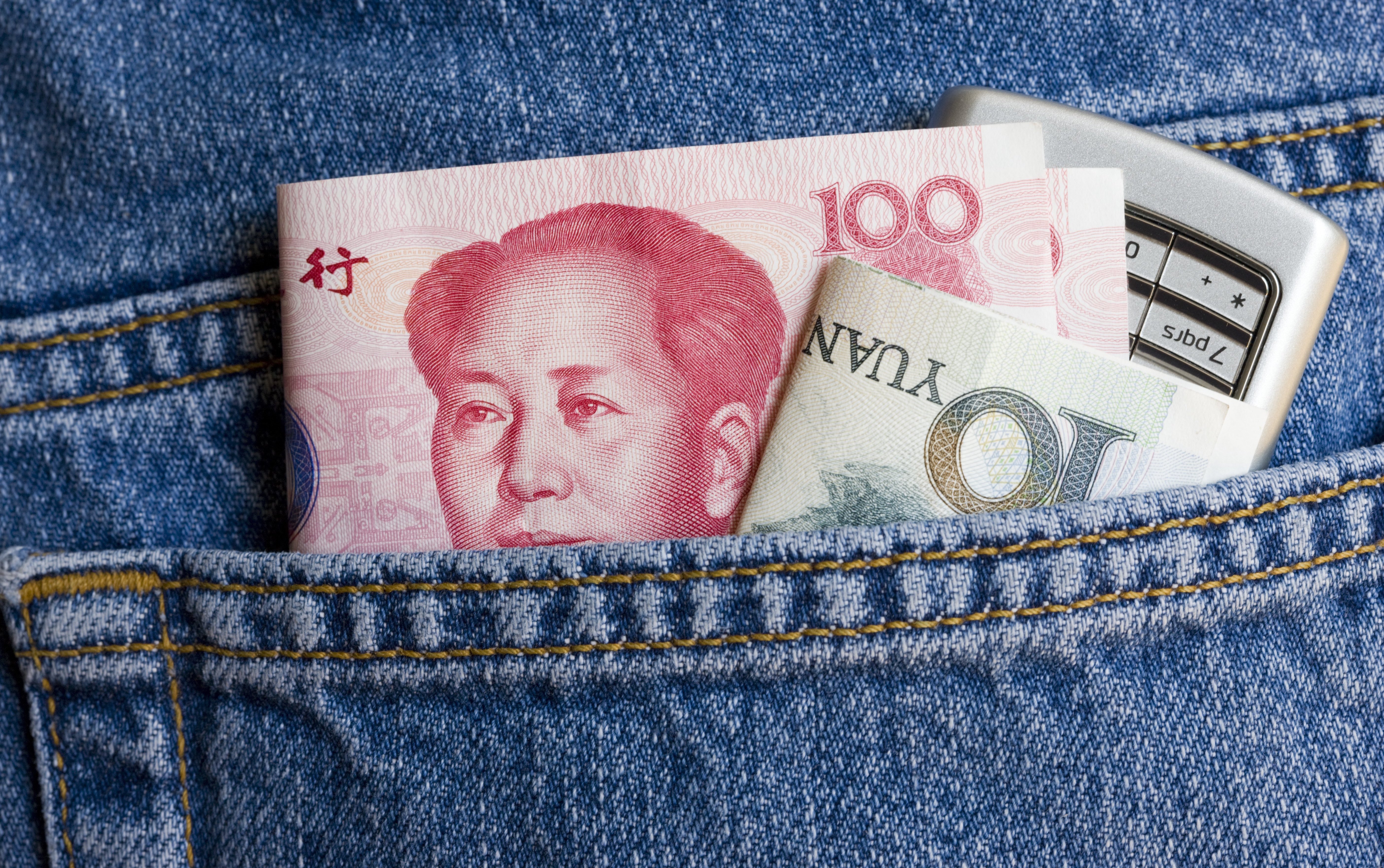
As China pushes forward with its digital yuan efforts, the country has announced new crypto bans. [Tim Graham via Getty Images]
What's up? It's Coinbase Bytes
There's never a dull moment on the blockchain. Here's what you need to know this week:
- China banned crypto...again. We compiled a brief history of the country's many attempts to limit crypto usage.
- Twitter enabled bitcoin "tips." Twitter Tips is the social media platform's foray into digital and crypto payments.
- The most intriguing quotes of the week. Hot takes and compelling microstories from the cryptoverse.
|
|
| ||||||
|
|
|
Price changes are for the past week, ending on Sep 29, 2021 at 01:59 PM UTC
HISTORY LESSON |
China bans crypto (again). A timeline of the country's decade-long crackdown
If the past week's headlines about China banning crypto are giving you déjà vu, that's probably because the country — home to the world's second largest economy — has been announcing various cryptocurrency crackdowns for over a decade. China's latest announcement aimed to curb trading via offshore platforms, and BTC dropped nearly 10% following the news. But how successful will China's new rules be in preventing citizens from buying and selling crypto, and how will the measures impact the broader market? Let's take a look back at previous crypto bans for clues:
- June, 2009 (BTC value $0.0001): Six months after Bitcoin was invented, China announces it will prohibit virtual currencies, primarily out of a desire to prevent gamers from using in-game money to purchase real-world goods. (Bitcoin isn't mentioned.)
- December, 2013 (BTC value $900): The People's Bank of China (PBOC) prohibits Chinese banks from engaging in Bitcoin-related business, although individuals can still trade. Prices drop 13% after tech giant Baidu stops accepting BTC and crypto exchange BTCChina is temporarily unable to accept yuan deposits.
- January, 2014 (BTC value $850): Prices fall again after e-commerce behemoth Alibaba follows Baidu's lead, proactively banning bitcoin transactions and sales of mining equipment. (This week, the company published a reminder about this policy.)
- September, 2017 (BTC value $4,000): The Wall Street Journal reports on Chinese authorities' plan to shutter all Bitcoin exchanges: "the government's attack on Bitcoin comes amid a focus on preventing capital from fleeing to digital currencies."
- May, 2021 (BTC value $37,000): Despite previous bans, China remains the global hub for bitcoin mining, with about 46% of the average hashrate as of April, according to a Cambridge University estimate. After government officials begin a widespread mining crackdown, miners begin to halt Chinese operations and migrate abroad — especially to North America. Mining power has steadily recovered since.
- September, 2021 (BTC value $43,000): As the PBOC reiterates existing restrictions on trading and mining, and moves to close a loophole around offshore crypto accounts, some vestiges of crypto activity (including over-the-counter trading) begin to shut down. Notably, the possession of crypto still appears to be legal — and many longtime local traders took advantage of low prices to add to their holdings. "These policies are not new to us, so we view them as a buy signal," one Shanghai-based crypto investor told Bloomberg.
Why it matters… Historically, China's crypto crackdowns have been motivated by a need to stem "capital flight" and control economic freedom in an authoritarian regime. But why so much focus now? Bitcoin's soaring price may be one reason — as well as a desire to support the value of China's central bank digital currency, which is beginning to roll out. As for the long-term impact China's latest moves will have on BTC's value, only time will tell. Each previous crackdown has roiled markets, but BTC has also historically recovered significantly. And some U.S. crypto proponents even see opportunity in Beijing's rejection of crypto: "China's authoritarian crackdown on crypto, including #Bitcoin, is a big opportunity for the U.S.," tweeted Pennsylvania Sen. Pat Toomey. "It's also a reminder of our huge structural advantage over China."
LIGHTNING STRIKES |
How Twitter is bringing BTC payments to the masses
Twitter just launched one of the largest crypto integrations of any mainstream platform yet: allowing users to send and receive Bitcoin "tips" via the Lightning Network, a protocol designed to make BTC payments faster and cheaper. Using the Lightning Network-compatible payments app Strike, (available in most of the the U.S. and El Salvador) many of Twitter's 360 million monthly active users will be able to send Bitcoin payments to other Twitter accounts instantly and for free.
- Bitcoin's Lightning Network is a "layer 2" solution that allows transactions to be processed faster and more cheaply. Layer 2 solutions are speedy parallel blockchains that work kind of like HOV lanes on a highway — and are designed to help the entire network to scale. For Twitter users, tipping in BTC will be as easy as with any other compatible third-party app (like Venmo or Patreon).
- Twitter's Tips feature can be used to reward popular creators, but more profound use cases are emerging too. The technology can be used to facilitate free and instant cross-border payments like remittances (money sent back home by expat workers) — especially as Strike rolls out to more countries. El Salvador recently made BTC legal tender, in part out of the desire to save Salvadorans some $400 million annually in money transfer fees.
- Twitter also plans to roll out NFT authentication "soon." According to a spokesperson: "NFT authentication will come in the form of a badge, shown on profile pictures, marking the owner's NFT as authentic."
- The company wants to position itself as a Web 3.0 (or Web3) leader. Web3 applications run on decentralized blockchain networks, as opposed to servers from centralized cloud providers like Amazon Web Services. CEO Jack Dorsey previously announced a project called Bluesky — a decentralized social media protocol that Twitter (and potentially other social networks) will eventually employ.
Why it matters… Twitter isn't actually the first creator-driven social platform to incorporate the Lightning Network — Substack has allowed BTC payments since late August. But the combination of its vast user base and Bitcoin-focused efforts make it unique. At the same time that Twitter's tipping functionality is helping fulfill one of Bitcoin's original promises (digital money made for the internet), it's also helping create the building blocks of the internet's future.

TAKES |
Snoop Dogg claims to be NFT whale, Miami gets its own cryptocurrency
- Airdrop it like it's hot... Snoop Dogg, who has assumed many aliases during his career, got crypto Twitter buzzing last week when he claimed to be NFT whale Cozomo de' Medici, whose known holdings are worth some $17 million. While there's clearly some relationship between the Twitter persona and the M.C., many are skeptical about the claim that they're one and the same (has he really been tweeting about NFTs all day from an anonymous account?) — especially as Snoop just kicked off the marketing campaign for his next album. "Follow the wallet 👀," the rapper tweeted cryptically.
- Must Love Doge… AMC CEO Adam Aron polled Twitter last week to see if the movie theater chain should accept DOGE (in addition to several other cryptocurrencies). After almost 80% voted in favor, Aron tweeted: "SO FASCINATING! … It's clear that you think AMC should accept Dogecoin. Now we need to figure out how to do that. Stay tuned!"
- Going long… During a Sirius-XM interview with sportscaster Jim Gray, seven-time Super Bowl champ Tom Brady discussed the future of crypto in sports and said he'd love "to get paid in some Bitcoin or Ethereum or Solana tokens." The quarterback added that he "can definitely see a world" where crypto payments become common for athletes.
- Survey says... A Newsweek poll found that roughly a third of 9,700 voters in nine American swing states would vote "yes" on a ballot measure to make crypto a legal form of payment. The poll's head of insights noted, "If a party wants to catch these receptive voters, it should act swiftly."
- Florida's new capital… Miami, whose mayor Francis Suarez is a major crypto booster, now has its own cryptocurrency. MiamiCoin (MIA) was built with the CityCoins, which helps cities create municipal cryptocurrencies using the Stacks protocol (a smart-contract layer built on Bitcoin). The mining process sends a portion of rewards to a wallet that belongs to the city. In a recent interview, Suarez said that MiamiCoin was generating $2,000 every ten minutes for Miami — which the city could one day use to pay for "municipal services without having to tax its residents, which would be obviously incredibly earth shattering."
TOKEN TRIVIA |
What is ADA?
| A | A scaling solution for Ethereum |
| B | The Autonomous Decentralized Association |
| C | Cardano's native cryptocurrency |
| D | A blockchain designed for NFTs |
Find the answer at the end of the email.
NOW TRADING ON COINBASE |
| SHIB |
Shiba Inu (SHIB) is a token that aspires to be an Ethereum-based alternative to Dogecoin (DOGE), the popular memecoin.
| ZEN |
Horizen is a blockchain ecosystem that enables privacy-preserving decentralized applications.
| AGLD |
Adventure Gold (AGLD) is an Ethereum token that was airdropped to owners of Loot Project NFTs.
Trivia answer
| C | Cardano's native cryptocurrency |
Disclaimer: This material is the property of Coinbase, Inc., its parent and affiliates ("Coinbase"). The views and opinions expressed herein are those of the author and do not necessarily reflect the views of Coinbase or its employees and summarizes information and articles with respect to cryptocurrencies or related topics that the author believes may be of interest. This material is for informational purposes only, and is not (i) an offer, or solicitation of an offer, to invest in, or to buy or sell, any interests or shares, or to participate in any investment or trading strategy, (ii) intended to provide accounting, legal, or tax advice, or investment recommendations or (iii) an official statement of Coinbase. No representation or warranty is made, expressed or implied, with respect to the accuracy or completeness of the information or to the future performance of any digital asset, financial instrument or other market or economic measure. The information is believed to be current as of the date indicated on the materials. Recipients should consult their advisors before making any investment decision. Coinbase may have financial interests in, or relationships with, some of the entities and/or publications discussed or otherwise referenced in the materials. Certain links that may be provided in the materials are provided for convenience and do not imply Coinbase's endorsement, or approval of any third-party websites or their content. Coinbase, Inc. is not registered or licensed in any capacity with the U.S. Securities and Exchange Commission or the U.S. Commodity Futures Trading Commission.
© Coinbase 2021 | Coinbase Inc.
100 Pine Street Suite 1250 | San Francisco, CA 94111 | US
+1 (888) 908-7930
Unsubscribe from future editions of Coinbase Bytes.


No comments:
Post a Comment